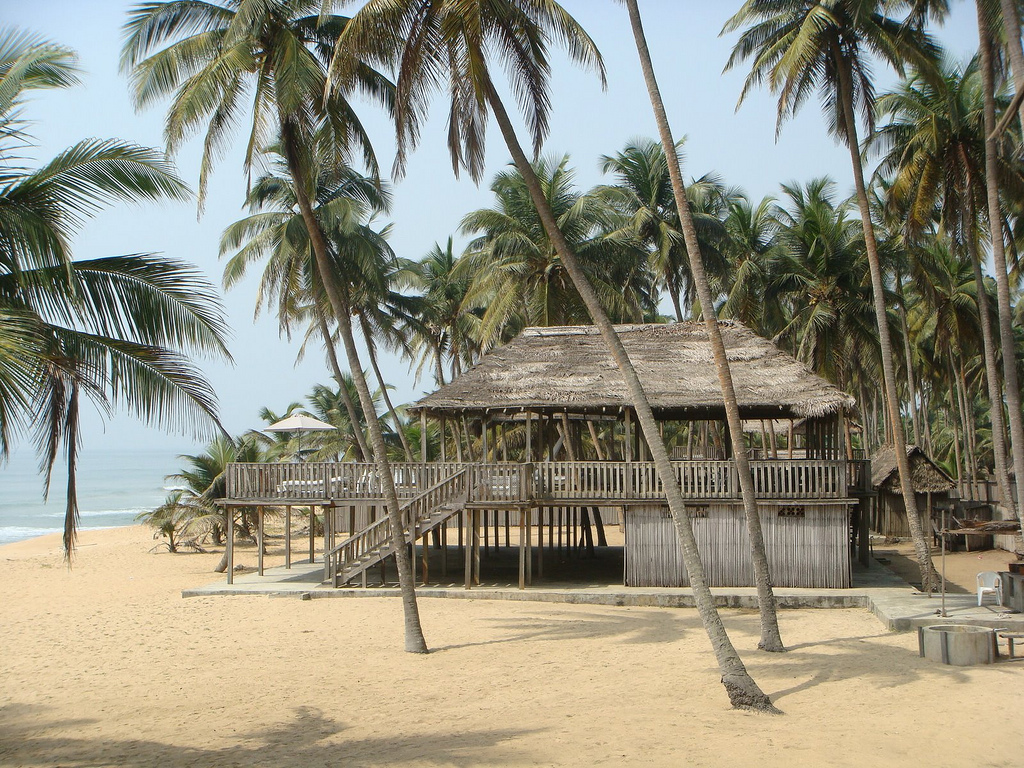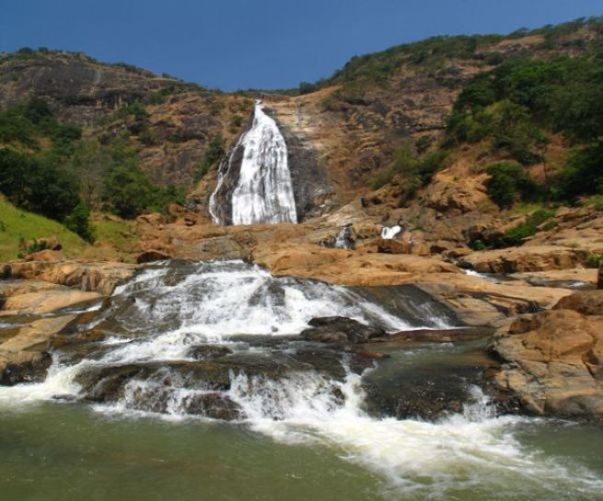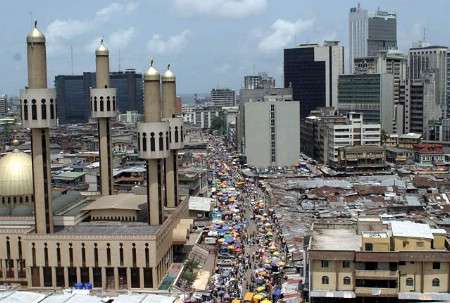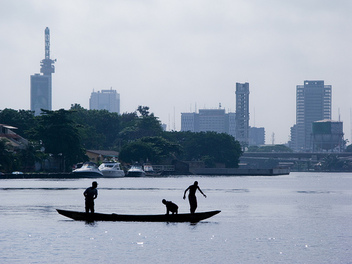PeopleNigeria has the largest population on the African continent and it holds the number 8 spot worldwide. At present, there are about 154 million Nigerians, the majority of whom live in rural areas.
There are over 200 ethnic groups, and the largest are the Fulani/Hausa, the Igbo and the Yoruba, which makes up the majority of the population. About 27% belong to the Ijaw, Edo, Kanuri, Ebire Nupe, Tiv, and Ibibio tribes. A small number of foreigners from Britain, the United States, China, Japan, Syria, Lebanon, India, and Greece also live in Nigeria. |
Nigeria is located in West Africa, sharing borders with Chad, Cameroon, and Benin. Its coast faces the Gulf of Guinea on the Atlantic Ocean. Nigeria is known for its rich culture and history, having been inhabited since 9000 BC. Among tourists, Nigeria is probably best known for its music. This has played a huge part in improving and promoting the beat and rhythm of West Africa, particularly the music genre referred to as palm-wine music, earning it the nickname 'heart of African music'. The folk music, along with the beautiful landscape, wildlife, and people are just a few reasons why people come to visit. Nigeria was named after the Niger River, which runs through the land. It was a term that Flora Shaw, the spouse of a colonial administrator of Britain, coined. |
Geography
Nigeria's landscape, like most countries in Africa, varies widely. The southeast is hilly while the southwest is composed mainly of flat savannahs. The central region, where the rainforest is, is thick and dense. Farther south there is a tropical rainforest climate, receiving as much as 80 in. of rain annually. The far north is hot and dry, receiving no more than 20 in. of rain each year. The remainder of the land is savannah, a hot and humid climate receiving a maximum of 60 in. of rain per year. So Nigeria is blessed with forests, plains, and savannahs, and a diversity of flora and fauna.
HistoryNigeria's first inhabitants were groups of people including the Nok, the Kano, Katsina, Fulani, Yoruba, and Oyo scattered in communities throughout the region. Prominent kingdoms flourished in the area as late as the 19th century when the Portuguese set up trade with Nigeria and named one area Lagos, now one of the major cities. Trade consisted of commercial goods and Nigerian slaves.
With the coming of foreign settlers and explorers, Nigeria became a protectorate of Britain, but gained its independence in 1960. Oil became Nigeria's ticket to riches in the 1970s, riches that were unfortunately lost to massive graft and corruption. Nigeria is now a democracy, something it earned only with sweat and blood. For most of its recent history, military juntas ruled the country. Today, Nigeria is considered as an important market to watch, thanks to its transport and oil producing industries and the excellent status of its financial, stock exchange and legal industries. |
Famous Attraction
Famous attractions for visitors include:
- The "Garden of Balata" - a private botanical garden about 10km outside the capital city of Fort-de-France. The garden is home to approximately 3,000 types of international tropical plants, as well as 300 species of palm trees.
- The House of Fashion and Carnival - a museum with a collection of carnival costumes that have been used during carnivals in Martinique.
- The Monument for the Dead represents the Martinican's who were killed in World Wars I and II.
- Place de la Savanne is a park with vendors who sell souvenirs as well as clothing and beach accessories.
- The Traditional Costumes Museum is outside of Fort-de-France and displays Christmas collectibles and traditional Martinique clothing.
- The Museum of History and Ethnography has a display of Creole jewelry, furnishings, musical instruments and clothing.
- The Pre-Columbian Museum has a display of "Arawak Indian" artifacts.
- The Fort-de-France Roman Catholic Cathedral that has been built entirely out of wood is another tourist attraction.
- The Victor Schoelcher Library, a glass and iron structure, was built in honor of a man who ended slavery on the island of Martinique. Victor Schoelcher donated over 10,000 of his personal books to this very library that today has more than 200,000 books. This library is designed in a "Baroque or Rococo Style" by the French architect Henri Piq. The library was physically moved to Martinique in 1893 from Paris, France.
- The "Garden of Balata" - a private botanical garden about 10km outside the capital city of Fort-de-France. The garden is home to approximately 3,000 types of international tropical plants, as well as 300 species of palm trees.
- The House of Fashion and Carnival - a museum with a collection of carnival costumes that have been used during carnivals in Martinique.
- The Monument for the Dead represents the Martinican's who were killed in World Wars I and II.
- Place de la Savanne is a park with vendors who sell souvenirs as well as clothing and beach accessories.
- The Traditional Costumes Museum is outside of Fort-de-France and displays Christmas collectibles and traditional Martinique clothing.
- The Museum of History and Ethnography has a display of Creole jewelry, furnishings, musical instruments and clothing.
- The Pre-Columbian Museum has a display of "Arawak Indian" artifacts.
- The Fort-de-France Roman Catholic Cathedral that has been built entirely out of wood is another tourist attraction.
- The Victor Schoelcher Library, a glass and iron structure, was built in honor of a man who ended slavery on the island of Martinique. Victor Schoelcher donated over 10,000 of his personal books to this very library that today has more than 200,000 books. This library is designed in a "Baroque or Rococo Style" by the French architect Henri Piq. The library was physically moved to Martinique in 1893 from Paris, France.
NightlifeThe capital, Abuja, and Lagos, are both excellent showcases of what nightlife in Nigeria is like. The best hotels, clubs, bars, and restaurants are found here. The people of Nigeria love a good party, particularly during festivities and national or local celebrations when the most famous streets in town are filled to capacity.
Nightlife in Nigeria is characterized by the unmistakable Nigerian beat - a mix of traditional rhythm integrated with flavor from Brazil, Cuba, and the Congo. Many of the nightclubs and bars have live performances of folk music and dance, so you can dance the night away. Many nightspots also play native rhythms fused with American jazz and R and B. |
Culture
Religious practices in Nigeria vary depending on the region. Many of those that live in the northern regions are Muslims, while those in southern regions are Christians. There are also numerous indigenous belief systems practiced in certain communities, and several smaller groups that practice Judaism, Hinduism and Baha'i. Some people practice Chrislam, a combination of Christianity and Islam.
Although English is considered the national language, Nigeria is a veritable Tower of Babylon, with an estimated 521 languages, nine of which are extinct. It's fairly common for many Nigerians to be bi- or multilingual, with many speaking Yoruba, Hausa, and Kanuri
Although English is considered the national language, Nigeria is a veritable Tower of Babylon, with an estimated 521 languages, nine of which are extinct. It's fairly common for many Nigerians to be bi- or multilingual, with many speaking Yoruba, Hausa, and Kanuri
CuisineNigerian cuisine is a real joy for spice lovers. Spices, particularly chilis, often find their way into the country's favorite dishes, but visitors who are wary of the heat can adjust the amount of spice to their personal taste.
Some of the most common ingredients found in Nigerian dishes include beans, corn, millet, sorghum, cassava, and yams. For flavor and meat, crayfish, smoked dried shrimps or prawns, and fermented black beans or locust beans are added. Dishes are also flavored with a variety of herbs and of course, peppers. Herbs are widely used, especially for soups such as Egusi. Nigerian cuisine is rich, varied, colorful, and flavorful, with recipes passed down from mother to daughter. Nigerians take great care in creating dishes that are a feast both to the eyes and the palate. It is decidedly African, with only spices and food crops introduced by European settlers contributing to the overall taste. |
Qunar







